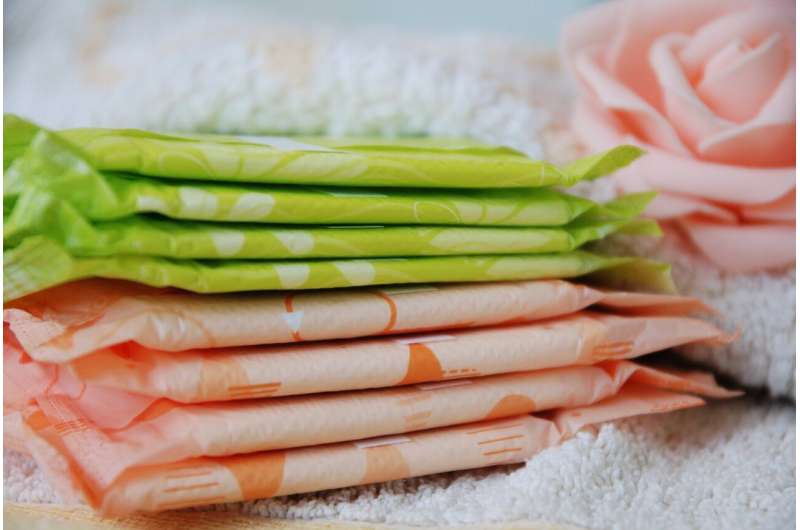1 in 10 college women experience period poverty, more likely to experience depression

Period poverty, a lack of access to menstrual hygiene products, and other unmet menstrual health needs can have far-reaching consequences for women and girls in the United States and globally.
New research led by George Mason University's College of Health and Human Services found that more than 14% of college women experienced period poverty in the past year, and 10% experienced period poverty every month. Women who experienced period poverty every month (68%) or in the past year (61.2%) were more likely to experience moderate or severe depression than those who did not experience period poverty (43%).
Dr. Jhumka Gupta, an associate professor at George Mason University was senior author of the study published in BMC Women's Health. Lauren F. Cardoso, a graduate student in Social Welfare at University of Pennsylvania and a research assistant at George Mason University at the time of the study was lead author.
"Period poverty is a common yet hidden and stigmatized public health issue in the United States and globally," explains Gupta. "It can reduce women's participation in school and in the workplace. Our findings document the pervasiveness of period poverty among college-aged women and underscores the negative mental health implications. It is thus critical that we provide support to women and other menstruators in obtaining such basic necessities during menstruation."
For the current study, Gupta, Cardoso, and colleagues collected and analyzed data from 471 women enrolled in undergraduate programs who were part of a larger national, on-line survey on menstrual health, endometriosis, and related stigma.
The study's findings also point to inequities in period poverty experiences. Black and Latina women reported the highest levels of period poverty experiences in the past year (19% and 24.5% respectively). Similar patterns were also seen for immigrant and first-generation students. In order to address the unmet basic need for menstrual products, women who experienced period poverty reported borrowing products, using other non-menstrual products (e.g., toilet paper or fabric), using pads or tampons longer than recommended, or going without them entirely during menstruation.
Gupta, Cardoso, and colleagues cite promising examples of initiatives in schools, colleges, and cities that have started to offer free menstrual products in recognition of this need, as well as policy initiatives to remove a "luxury tax" from these products.
"The mental health of college students is of tremendous importance in the United States. Our study findings linking period poverty with increased vulnerability to depression suggest that addressing period poverty should be part of efforts to address well-being among college students," stated Cardoso.
More information: Lauren F. Cardoso et al, Period poverty and mental health implications among college-aged women in the United States, BMC Women's Health (2021). DOI: 10.1186/s12905-020-01149-5

















